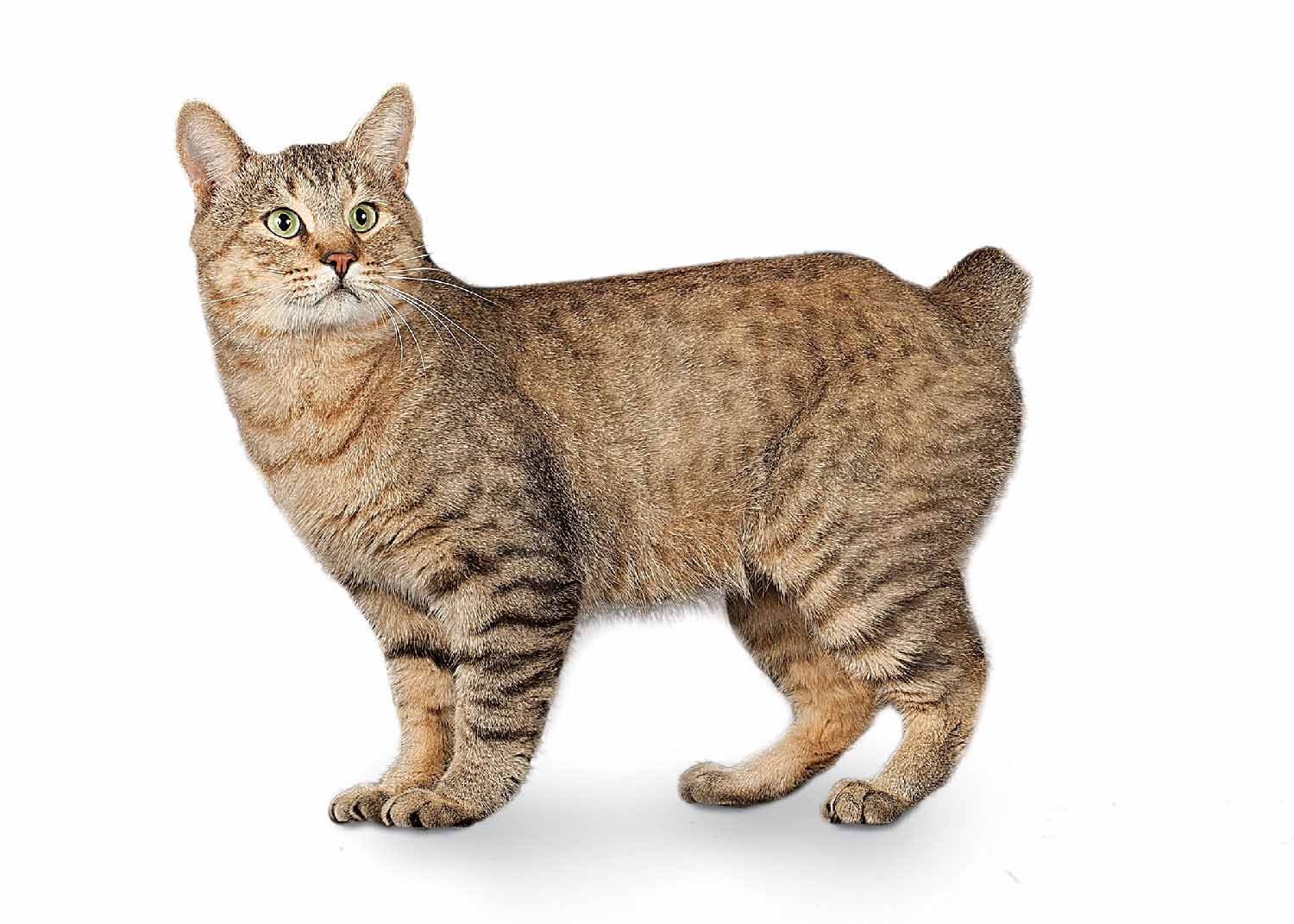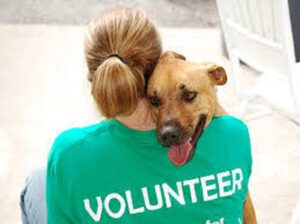Key Takeaways
-
Adopting an American Bobtail cat enriches your life with a friendly and adaptable companion.
-
The cost of an American Bobtail typically ranges from $600 to $1200, depending on the breeder and location.
-
American Bobtails are known for their longevity, often living 13-18 years with proper care.
-
These cats are incredibly friendly, making them suitable for families and multi-pet households.
-
While generally healthy, American Bobtails can have specific health issues that require attention and prevention.
Welcome to the World of American Bobtails
Imagine a feline friend who is not just a pet, but a true member of the family, offering companionship, love, and a touch of wild beauty. That’s the American Bobtail, a breed that captures hearts with its unique bobbed tail, striking appearance, and endearing personality. If you’re considering expanding your family with a four-legged friend, an American Bobtail cat could be the perfect addition.

“American Bobtail Cat & Kitten Breed and …” from www.petfinder.com and used with no modifications.
American Bobtail at a Glance
Before diving into the adoption process, let’s quickly review what makes the American Bobtail so special. Known for their short tails, this breed stands out with its muscular build, expressive eyes, and a coat that can be either short or long-haired. But it’s not just their looks that captivate; these cats are known for their dog-like personalities, enjoying interactive play and even learning tricks. They thrive on companionship and fit well into various living situations, from apartments to spacious homes.
Where to Start Your Adoption Journey
Your journey to adopting an American Bobtail starts with research. Understanding the breed’s needs and characteristics is crucial to ensure you’re ready for this commitment. A good place to begin is by contacting local shelters and rescue groups that specialize in American Bobtails or looking for breed-specific rescues that might have these cats available for adoption.
The Adoption Process Unraveled
The adoption process is both exciting and serious. It’s not just about picking a cat; it’s about finding a match that suits your lifestyle and providing a forever home for a creature that will depend on you. Be prepared to fill out detailed applications, answer questions about your living situation, and possibly undergo a home visit from the rescue organization. This is standard to ensure the welfare of the cat and the readiness of the adopter.
When you visit a rescue, spend time with the American Bobtails available. Observe their behavior, ask about their history, and see how they interact with you. Remember, you’re not just looking for any cat; you’re looking for your cat. Trust your instincts and let the staff guide you—they’re experts at making purr-fect matches.
Example: When Sarah visited the rescue, she didn’t expect to be chosen by a cat rather than the other way around. But when a playful American Bobtail with bright green eyes hopped into her lap and purred, she knew she had found her new best friend.
Seeking Out American Bobtail Rescues
While American Bobtails are not as common as some other breeds, don’t let that discourage you. They are out there, waiting for someone like you to give them a loving home. Use the internet to your advantage—search for breed-specific rescues and check out websites like Petfinder, which can filter searches to show available Bobtails in your area.
Don’t forget to check your local shelters as well. While breed-specific cats can be rare in such places, you never know when you might find an American Bobtail or a mix that has ended up there. Keep an eye on adoption events too; sometimes, shelters will bring in breeds from other areas to give them a better chance at finding homes.
Preparing Your Home for a Bobtail
Once you’ve decided to adopt, it’s time to prepare your home. American Bobtails are active and curious, so you’ll need to cat-proof your space. Ensure that windows are secure, toxic plants are out of reach, and that you have plenty of stimulating toys. They’re also social creatures that thrive on interaction, so consider where your new cat will spend their time and how they’ll be part of the family dynamic.
Setting up a comfortable resting area, a scratching post, and a litter box in a quiet, accessible spot is also essential. Remember, the first few days in a new environment can be stressful for any pet, so patience and gentle encouragement are key as they settle into their new home.
Investing in an American Bobtail
Bringing an American Bobtail into your life is an investment in joy, but it also comes with financial responsibilities. Initially, you may need to pay an adoption fee, which can range from $75 to $150 if you’re adopting from a shelter. However, if you’re purchasing from a breeder, the price can skyrocket to anywhere between $600 and $1200. The cost can vary based on the cat’s age, pedigree, and the breeder’s reputation.
Initial Costs of Ownership
When budgeting for your new feline friend, consider the following initial costs:
-
Adoption fees: As mentioned, these can vary widely.
-
Spaying/Neutering: If not already done, this is a must for the health and well-being of your cat.
-
Vaccinations: Essential for preventing disease.
-
Microchipping: A safety net to help you find your pet if they ever get lost.
-
Supplies: Including a litter box, scratching post, bed, carrier, and toys.
-
Initial vet visit: To ensure they’re healthy and to establish a baseline for future care.
Remember, these costs are just the beginning. You’ll also need to factor in ongoing expenses such as food, litter, regular veterinary check-ups, and any unexpected health issues that might arise. For more information on what to consider when adopting your ideal cat, check out our guide on the best breeds and top picks for first-time owners.
Ongoing Care Expenditures
After the initial investment, you’ll have ongoing costs to keep your American Bobtail happy and healthy. These include:
-
High-quality cat food: To maintain their health and energy levels.
-
Regular veterinary care: Including vaccinations, dental cleanings, and check-ups.
-
Pet insurance: A wise option to help cover unexpected medical expenses.
-
Grooming supplies: Especially if you have a long-haired variety, to keep their coat in tip-top condition.
-
Toys and enrichment: To keep their active minds stimulated.
The Long-Haired Companion: Lifespan of an American Bobtail
The American Bobtail is not only a companion but also a long-term commitment. With a lifespan that typically ranges from 13 to 18 years, adopting one means you’re in for many years of shared memories and experiences. Of course, just like with any other breed, their lifespan can be influenced by a variety of factors, including genetics, diet, exercise, and healthcare.
Life Expectancy Factors
Several factors can influence how long your American Bobtail will live:
-
Genetics: Just like humans, a cat’s lifespan can be affected by the genes they inherit from their parents.
-
Diet: A balanced diet tailored to their age, weight, and health needs is crucial.
-
Exercise: Regular play keeps them fit and helps prevent obesity-related health issues.
-
Healthcare: Regular vet visits and vaccinations are key to early detection and prevention of diseases.
-
Environment: Indoor cats typically live longer due to being protected from outdoor hazards.
Maximizing Your Cat’s Longevity
There are steps you can take to help ensure your American Bobtail lives a full and happy life:
-
Provide a safe, indoor environment to protect them from outdoor dangers.
-
Engage them in daily play to keep them physically active and mentally stimulated.
-
Feed them high-quality cat food and ensure they always have access to fresh water.
-
Schedule regular veterinary check-ups to catch any health issues early.
-
Keep them up to date with vaccinations and parasite prevention.
By attending to these aspects of their care, you’re setting the stage for a long and healthy life together.
Personality Plus: Are American Bobtails Friendly?
One of the most delightful aspects of the American Bobtail is their friendly and sociable nature. These cats are known for their ability to bond deeply with their families and are often described as having a dog-like personality. They enjoy interactive play and are known to be quite intelligent, often learning tricks and games with ease.
Interacting with an American Bobtail
Interacting with an American Bobtail is a joy. They are typically very affectionate and enjoy being involved in whatever their human companions are doing. Whether you’re reading a book, watching TV, or working at your desk, don’t be surprised if your Bobtail wants to be right there with you, offering their companionship.
Bobtails in Multi-Pet Households
Because of their friendly disposition, American Bobtails usually get along well with other pets, including dogs and other cats. They tend to be adaptable and can fit into the pack quite easily. However, as with any new pet introduction, it’s important to take it slow and supervise initial interactions to ensure all animals feel safe and comfortable. For insights on creating a harmonious multi-species household, consider reading our guide on dog and hamster cohabitation.
Staying Ahead: American Bobtail Health Concerns
While American Bobtails are generally healthy cats, there are certain health concerns to be aware of. Knowledge is power, and being informed about potential health issues can help you provide the best care for your pet.
Common Health Problems
Some of the health issues that may affect American Bobtails include:
-
Spinal problems related to their unique tail structure.
-
Heart disease, such as hypertrophic cardiomyopathy.
-
Obesity, which can lead to other health complications.
It’s important to work with a veterinarian who is familiar with the breed and can guide you on the best preventative care practices.
Preventative care includes regular vet check-ups, maintaining a healthy weight through diet and exercise, and keeping up with vaccinations and parasite control. By staying proactive about your American Bobtail’s health, you can help prevent or manage these issues effectively.
Preventative Care for Your Bobtail
Here’s how you can stay on top of your American Bobtail’s health:
-
Schedule regular veterinary visits for check-ups and vaccinations.
-
Keep them at a healthy weight with a balanced diet and regular play.
-
Watch for any signs of illness or discomfort and address them promptly.
-
Ensure they have a stress-free environment, as stress can impact their health.
By taking these preventative steps, you can help your American Bobtail lead a healthy, happy life and avoid some common health issues.
The Emotional Bond
Adopting an American Bobtail is more than just bringing a pet into your home; it’s about creating a deep emotional bond that enriches your life. These cats are known for their loyalty and affectionate nature, often forming strong attachments to their human families. They’re not just pets; they become integral members of the family, providing companionship, comfort, and joy. It’s this emotional bond that makes the adoption journey so rewarding.
Enrichment and Environment Tips
To ensure your American Bobtail thrives, it’s important to provide an enriching environment that caters to their playful and curious nature. This means having a variety of toys and play activities to keep them entertained. Scratching posts, window perches, and puzzle feeders are great for stimulating their mind and body. Also, regular interactive play sessions can help strengthen the bond between you and your new feline friend while keeping them active and engaged.
Frequently Asked Questions
When it comes to adopting an American Bobtail, there are often many questions that potential pet owners have. Here are some of the most common inquiries:
What makes American Bobtails different from other cats?
American Bobtails are distinguished by their unique physical characteristics, notably their short tails, which can be straight or have a slight curve. They also possess a robust and muscular build, with a wild appearance that belies their friendly and affectionate nature. Additionally, they are known for their intelligence and adaptability, often displaying a dog-like personality that includes loyalty and a fondness for interactive play.
Is the American Bobtail a good choice for first-time pet owners?
Yes, American Bobtails can be a great choice for first-time pet owners. They are generally easygoing and adaptable, which makes them a good fit for various living situations and lifestyles. Their friendly and affectionate demeanor means they are less likely to be standoffish or overly demanding. However, it’s important for first-time owners to be prepared for the responsibilities of cat ownership, which include regular veterinary care, a proper diet, and plenty of love and attention.
That being said, like any pet, they do require commitment and consistent care. As a first-time pet owner, you should be ready to invest time in learning about proper cat care and be prepared for the responsibilities that come with owning a pet. With the right preparation, an American Bobtail can be a wonderful addition to your home.
What are the signs of health issues in Bobtails?
As a responsible pet owner, it’s crucial to be aware of the signs that may indicate health issues in your American Bobtail. Some common signs include changes in appetite or weight, lethargy, hiding, vomiting or diarrhea, changes in litter box habits, coughing or difficulty breathing, and any unusual behavior or appearance. If you notice any of these signs, it’s important to consult your veterinarian as soon as possible.
-
Changes in appetite or drinking habits
-
Unexplained weight gain or loss
-
Excessive grooming or hair loss
-
Changes in behavior or activity level
-
Signs of pain, such as reluctance to be touched or difficulty moving
Regular health check-ups and being attentive to your cat’s behavior can help catch any potential issues early, ensuring your American Bobtail remains healthy and happy.
How can I find a reputable American Bobtail breeder or rescue?
Finding a reputable American Bobtail breed specific rescue group is key to ensuring you get a healthy and well-socialized cat. Start by doing your research online and checking reviews and testimonials. Look for breeders or rescues that are transparent about their practices, provide health guarantees, and are willing to answer all your questions. You can also reach out to breed clubs or associations for recommendations.
It’s important to visit the location in person if possible. This allows you to see the conditions in which the cats are raised and to meet the cats themselves. A good breeder or rescue will prioritize the well-being of their cats and be committed to finding them the right homes.
Can American Bobtails adapt to apartment living?
American Bobtails are known for their adaptability and can indeed thrive in apartment settings. Here are a few tips to ensure your American Bobtail is happy in an apartment:
-
Provide vertical space: Cats love to climb, so cat trees and shelves can help them feel at home.
-
Keep them stimulated: Regular playtime and a variety of toys will keep them entertained and prevent boredom.
-
Consider a companion: If you’re away from home often, another pet can provide company for your Bobtail.
With the right environment and care, American Bobtails can be content and joyful in apartments just as much as in larger homes.


